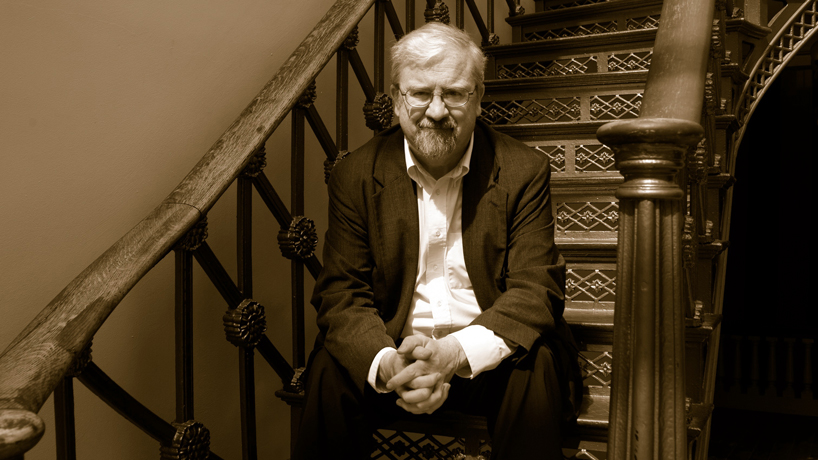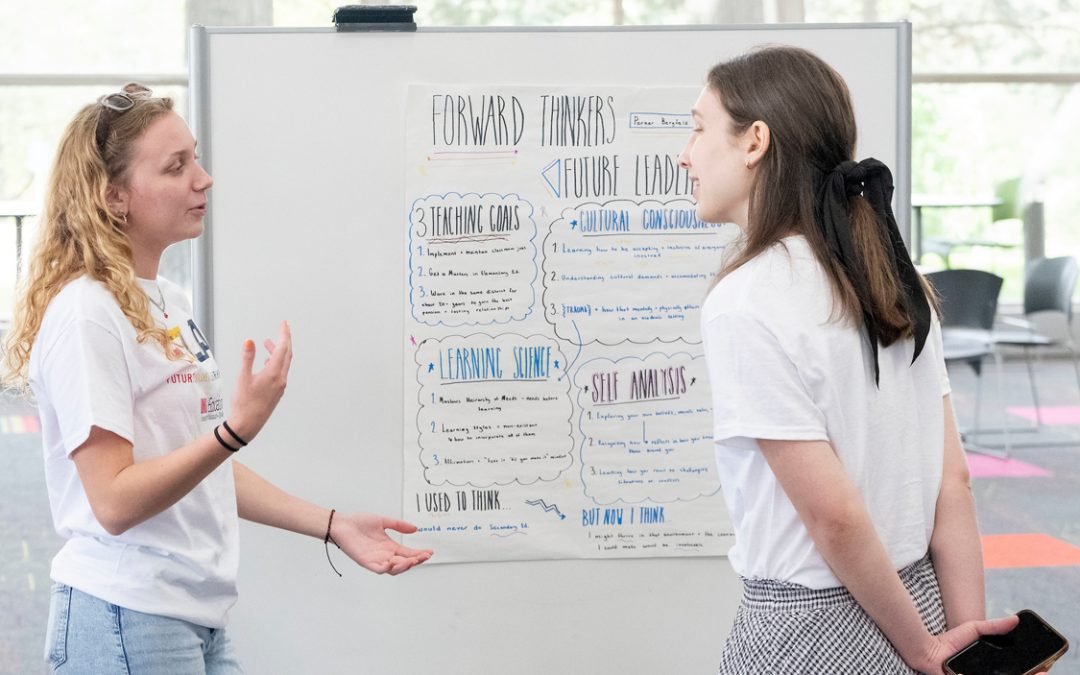
A prolific translator of documents penned long ago in German and French, Founders Professor of History Steven Rowan has lately been on a mission to make his English versions of the texts widely accessible to the public. (Photo courtesy of Steven Rowan)
The names Clara von Gerstner and Michel Chevalier probably don’t sound familiar. After all, the historical limelight has mostly been focused on Alexis de Tocqueville, their celebrated 19th-century peer.
But Tocqueville was hardly the only European of his day to travel to the New World and record his observations of a burgeoning United States, and Steven Rowan knows that better than most.
A longtime faculty member in the Department of History at the University of Missouri–St. Louis, Rowan has over the years introduced his UMSL students to the writings of Gerstner, Chevalier and other early visitors and newcomers to America. In some cases, that task has included translating extensive German and French documents into English for the first time.
Rowan’s affection for the late authors of those thousands of pages quickly becomes obvious as he discusses who they were and why they came to America.
He speaks animatedly of Gerstner, the author of “Description of a Journey through the United States of North America,” describing her travels in present tense.
“Clara is a very intelligent woman who loves technical things, and just like Tocqueville she visits prisons and educational institutions,” Rowan says of the German noblewoman, who published her account in 1842 after returning to her home country. “But she’s really at her heart a Catholic. And so she’s very drawn to visiting convents and religious institutions.”
Gerstner also visited Washington and detailed the interiors of the Capitol and White House at the time – as well as the young country’s patent office, which particularly sparked her interest. But eventually, as Rowan explains, her journey took a sorrowful turn.
“They go to Philadelphia, and her husband dies, and it shatters her,” Rowan says. “She has a daughter and names her Philadelphia, and then they go back to Germany. We don’t know anything about the rest of her life. I’ve tried, but I can’t find anything else about her.”
The wealth of knowledge that Rowan has gained about her, however, is something he’s working hard to preserve and make accessible to a much larger audience.
Along with his translation of Gerstner, Rowan has been busy finding digital homes for his English versions of works by Chevalier – who was sent to America after being imprisoned in France for being a feminist – and by Charles Testut and Baron Ludwig von Reizenstein.
“I’m 75 years old,” Rowan says when asked about his motivation. “I’m a Founders Professor, and I’ll probably teach for another year if I’m lucky. If I vanish from the scene, these things will be orphans, and so I want to find a home for my orphans.”
One such destination is UMSL’s Institutional Repository Library, where anyone browsing the internet can access Rowan’s translations of Chevalier. The historian connected with Lena Marvin, who launched IRL for the university just over a year ago, to get that rolling.
Meanwhile, the Gerstner materials have been provided to the university’s St. Louis Mercantile Library for inclusion in its digital collections, and Rowan has partnered with institutions in Louisiana to make the Testut and Reizenstein works widely available.
It’s all really a labor of love at this point, according to Rowan.
“All of these things are done as a result of enthusiasm – you’re never going to make any money on these things,” he says. “But translation is an important thing, and I thought it was just fun to do it.”
He’s actually translated two different 19th-century novels that are both titled “The Mysteries of New Orleans” – one written in French, by Testut, and the other by Reizenstein, a German immigrant who wound up in New Orleans after first wandering the Midwest selling bird cages.
“The Reizenstein ‘Mysteries’ is a huge book, and it’s probably the most scandalous book published in America in that time,” Rowan says. “The Testut novel is really interesting too and very complex. Part of it takes place in California during the Gold Rush, with all sorts of sidelights. But it’s nowhere near as scandalous as Reizenstein.”
Indeed, a quick scan of Rowan’s fresh introduction to Reizenstein along with an excerpt that Louisiana Anthology recently published online offers a sense of just how readily Reizenstein crossed the accepted boundaries of his day.
“Reizenstein was a scream to translate,” Rowan says. “He offers a biting picture of New Orleans Southerners, and I think he probably just tried their patience too much.”
That’s why all of Reizenstein’s serialized novels, while expansive, were left ultimately unfinished, the professor adds.
But they won’t be left unread – nor will the works by Testut, Chevalier or Gerstner – thanks to Rowan’s scholarship. And all of them offer unique insights on a tumultuous period of American history.
“There are a million translations of Tocqueville,” Rowan says. “But there are these other visitors to America, and their enthusiasm about the United States is really fascinating as well. Many of them are absolutely blown away by it. They find the energy, the creativeness of America, very exciting.”














